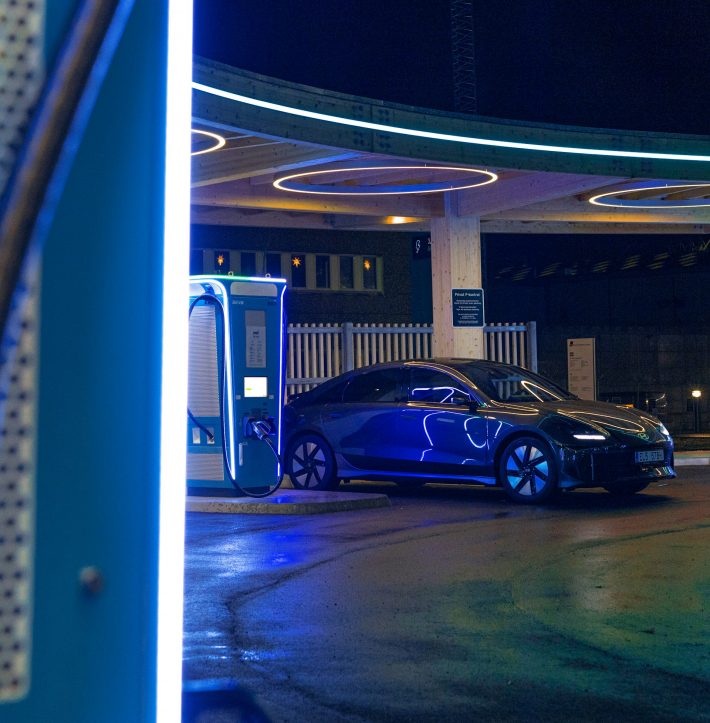BearingPoint unveils the findings from a comprehensive study into digital strategies and partner ecosystems within the global automotive sector. The report Partnership ecosystems: the driving force behind mobility innovation? reveals that more than half of automotive companies believe they can win the ‘battle for the dashboard’ against the tech giants all alone. And yet, 46% of automotive companies still expect a 16%+ boost in revenues in the next two years from adding partner ecosystems.
Automotive digital strategies – the state of play
50% of automotive companies have clearly defined digital business strategies in place and are implementing them, while 49% remain in the planning phases. Over half (59%) identify business model innovation and introducing new products and services as key tenets of their digital strategies. Working with ecosystem partners, they realise they can quickly generate new revenue streams and launch far more compelling products and customer experiences before start-ups and the tech giants beat them to it.
“Automakers understand the impact that emerging technologies trends like connected cars, autonomous drive and mobility-as-a-service will have on their businesses,” said Matthias Loebich, global leader production industries at BearingPoint.
“Many also understand the need for partners who can marshal investment, IP assets and provide complementary digital skills and capabilities. But a slim majority – 52% – are living in the past, clinging to a world in which a ‘walled garden’ protected innovation from competitors. Shedding this default mindset is the number one challenge for automotive companies who want to capitalise co-innovation and the digital ecosystem business model opportunity.”
Partnerships: ambitions high, confidence shaky
Automotive companies have high expectations of the value that partner ecosystems will deliver to their businesses – 46% anticipate a 16%+ revenue growth in just two years. Of that, 24% predict an even bigger bump of between 21 and 30% over the same timeframe.
But for all the talk of new partner-driven revenue streams, most automotive companies believe that they can go it alone – only 48% felt that to be successful they need to develop and manage a clearly defined partner ecosystem. The potential reason: 70% of automotive companies feel that the complexity that comes with partner ecosystems may lead to consumer confusion over the brand.
“Slow execution of digital strategies reflects conservative views on owning the customer relationship and collaboration in the automotive sector. Automotive companies have relied on franchise dealerships to own the customer relationship. In digital, having a full view of customer needs and using it to drive co-innovation with a complimentary set of ecosystem partners is how the model works,” says Angus Ward, CEO of Digital Platform Solutions at BearingPoint.
“But in today’s digital world, where the competition is not only traditional automakers but giant web-scale technology companies, they must more rapidly embrace open ecosystem collaboration with multiple partners to get that breadth of innovation. To thrive, they need to have a clear picture of what the customer wants in order to find ‘white space’ for creating compelling products whilst staying front of mind for customers to keep their brands relevant.”

Positively, automotive companies have a strong focus on growing partnerships with digital disruptors. 29% partner with them today, but 41% expect to be partnering with digital disruptors in the next two years. By partnering with these entities, automotive companies can continually develop and sell digital services that will generate new recurring revenues streams from the connected customer.
Technology barriers stand in way of partner ecosystem realisation
The number one challenge facing automotive companies is having the right technology in place to manage monetisation across the partner ecosystem (59%). All their technology is geared to the ‘walled garden’ of their enterprise rather than wider, external ecosystems. More than half (57%) also noted that, with IT landscapes built on traditional linear value chains rather than multi-sided business models, there was difficulty in identifying the right technology to manage a partner ecosystem, as well as overcoming the spaghetti of a complex IT environment (48%).
“While there are a number of technological barriers to realising the benefits of partner ecosystems, these are functional, soluble challenges,” concludes Matthias Loebich. “The real problem is the mindset of legacy inertia that seemingly infects half the automotive sector. This should act as a rallying cry for those automotive companies that have more contemporary attitudes to partnership and innovation. The spoils are significant, if they move quickly.”
Comment on this article below or via Twitter: @IoTNow_OR @jcIoTnow










